ALWAYS store these foods in the fridge
Best kept chilled
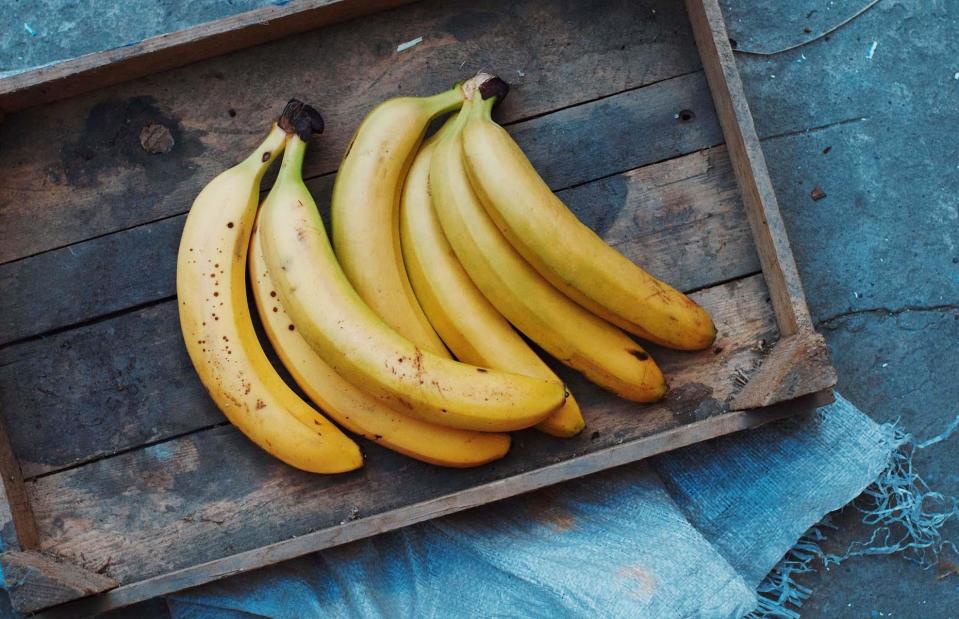
ch_ch/Shutterstock
It's obvious that some foods – like meat, fish and dairy – should be kept in the fridge. But there are other ingredients you might be surprised to learn you're storing incorrectly. To keep your groceries at their best for longer (and even prevent dangerous bacteria from developing), read on to find out which foods are much better off out of the pantry or cupboard.
Dates

Smarina/Shutterstock
You might be surprised to find out that dates are best stored in the fridge, despite the fact other dried fruit is fine the cupboard. This is because dates are not as dehydrated as other dried fruit, like cranberries or apricots. As they still hold a bit of moisture, it's best to keep them cool in an airtight container to preserve their flavour. If you store them outside the fridge, they will progressively become more dry and lose their taste.
Mustard

Creative Family/Shutterstock
Whether it's Dijon or wholegrain, the preservatives in mustard mean it's completely safe to keep in your pantry after opening. However, you will significantly improve the quality if you store open jars of mustard in the fridge. The cooler temperatures will help preserve that beautiful colour and it'll keep its kick and punchiness for much longer as well.
Jam

5 second Studio/Shutterstock
It wouldn't be entirely ridiculous to assume that because of the high sugar content, jam won't spoil after opening if you keep it in the cupboard. But it's definitely best kept in the fridge. This helps prevent discolouration, changes in consistency and even loss of flavour – and most importantly, it prevents mould from growing. Another top tip: never double-dip spoons in jars and don't dip food directly into a jar of jam, to avoid bacterial contamination.
Eggs (but only in the USA)
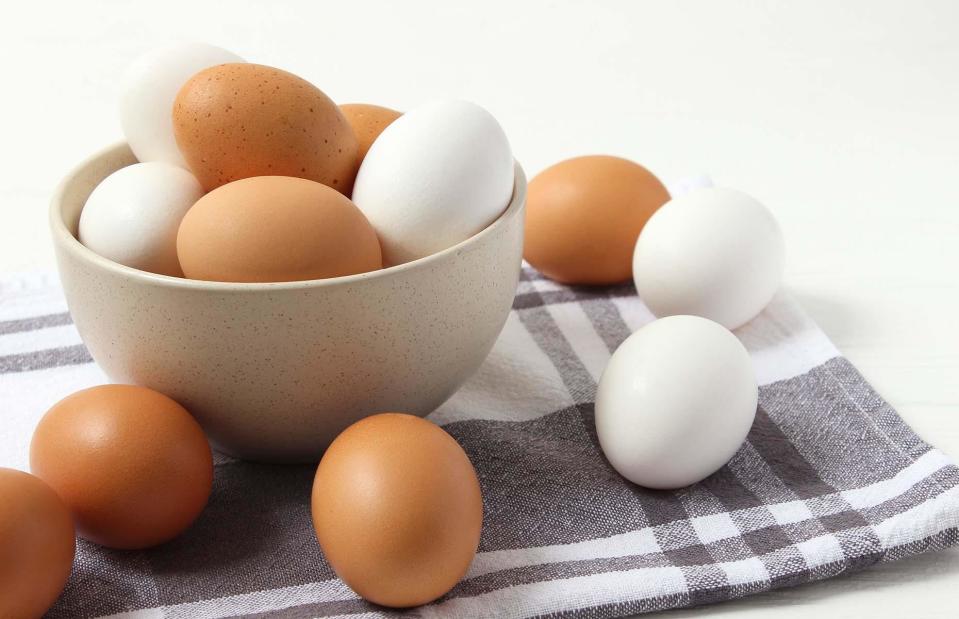
White bear studio/Shutterstock
In the US, eggs are sterilised after production to kill bacteria, which also weakens the eggshell. This means they should be kept cool to prevent the bacteria from returning. In most of Europe, disinfecting eggs is illegal and the EU recommends that eggs are kept cool but not refrigerated.
Opened red wine

Ievgenii Meyer/Shutterstock
Going against everything you thought you knew about wine, opened bottles of red should be stored in the fridge. Once opened and exposed to oxygen, wine can quickly change in colour, flavour, even mouthfeel and soon enough turn into vinegar. Cooler temperatures slow down these processes, including oxidation. Store bottles upright in the fridge and drink within five days. You might be surprised to find that some red wines even benefit from being served slightly chilled.
Sesame oil

Elena Schweitzer/Shutterstock
As it turns out, there is a whole host of oils that will benefit greatly from being stored in the fridge. Sesame oil and other unrefined nut oils are prone to going rancid and losing their flavour if kept at room temperature. A simple explanation is that nut and seed oils contain polyunsaturated fatty acids which are susceptible to oxidation. Many will go a bit cloudy when stored in the fridge, so just take them out a few minutes before cooking to bring them to room temperature.
Cold-pressed oils

SMarina/Shutterstock
Similarly to nut oils, cold-pressed oils can also spoil over time due to oxidisation. Flaxseed oil, for example, contains alpha linolenic acid, which means it's unsaturated and therefore more unstable. While it doesn't have to be kept in the fridge, refrigeration will certainly prolong its shelf life and slow down the oxidisation process, retaining its flavour and health benefits for longer.
Infused oil

Africa Studio/Shutterstock
Infused oils are a great way of injecting extra flavour into marinades and salad dressings, or to finish a dish. What's more, they're super easy to make at home but you should be aware that there is a risk of botulism. Any fresh herbs, fruit or veg that you add to your oil can contain C. bot (Clostridium botulinum) spores. And, as fresh produce contains water, this allows the bacteria to grow. To prevent it, keep infused oils refrigerated and use within a week.
Ketchup (after opening)
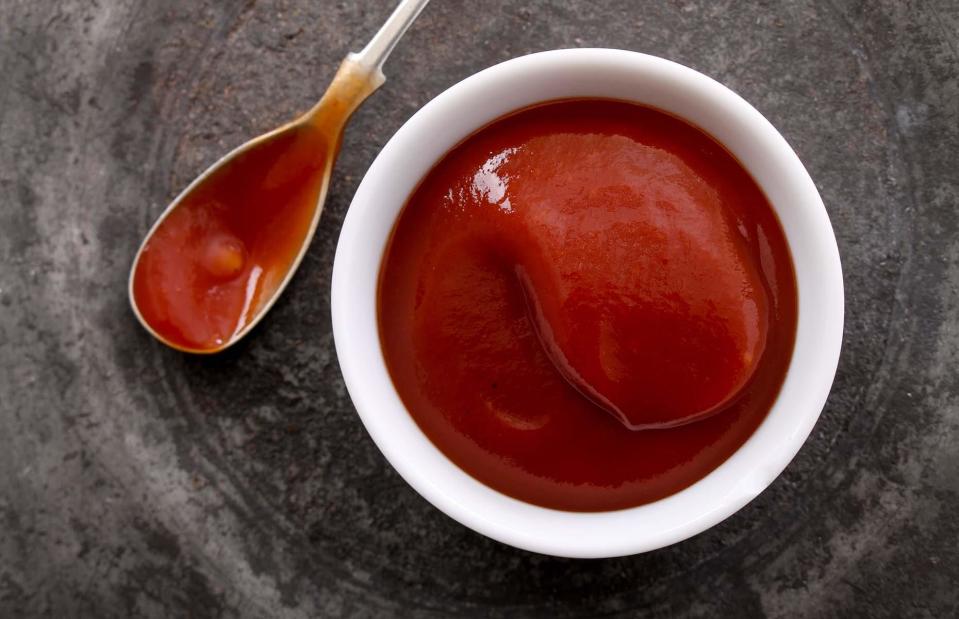
neil langan/Shutterstock
Whether ketchup should be stored in the fridge or in the store cupboard is somewhat of a contentious question. Some people assume that due to ketchup's high vinegar, salt and sugar content, it's safe to store at room temperature. But that isn't exactly the case. Heinz has confirmed that thanks to its natural acidity, Heinz Ketchup is shelf-stable. However, as soon as you've opened your bottle, the storage conditions can affect that stability. "We recommend that this product, like any processed food, be refrigerated after opening," says Heinz.
Bottled lime and lemon juice

Michael Guggemos/Shutterstock
Both shop-bought bottled lime and lemon juice are better off in your fridge after opening. If unrefrigerated, the flavour can become more sour and unpleasant over time or, in fact, become tasteless. Lime juice in particular will also start to brown if it's not refrigerated and sealed tightly.
Apples

VasiliyBudarin/Shutterstock
One of the few fruits that benefit from refrigeration are apples. This is because apples release ethylene gas which speeds up the ripening of any nearby fruit and veg. If kept in the fridge, the production of ethylene is slowed down, making them (and other produce) last longer. Just make sure you don't keep apples together with other fruit or veg, and cover them with a damp paper towel or store in a plastic bag with holes.
Chocolate syrup
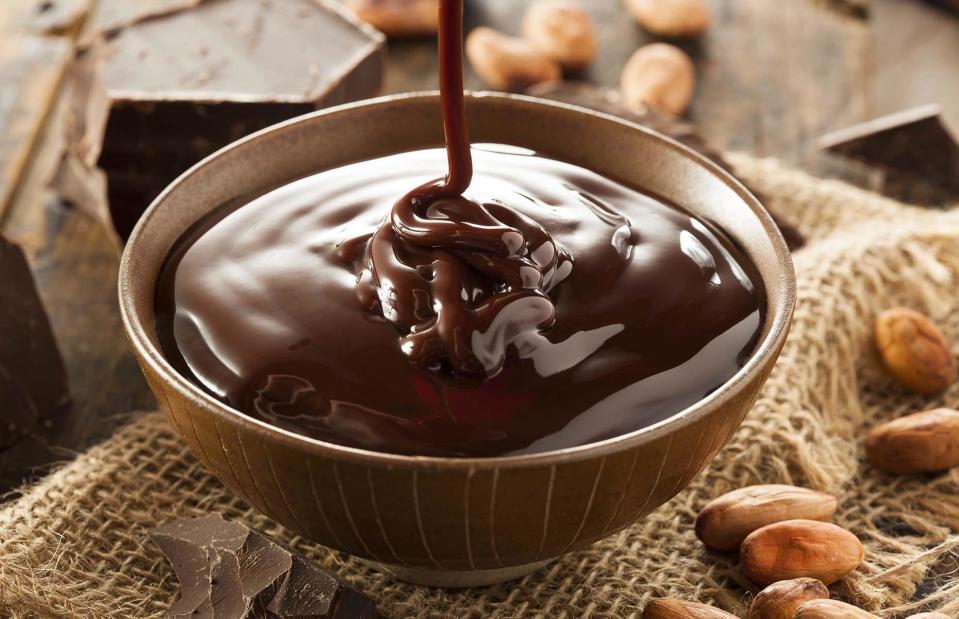
Brent Hofacker/Shutterstock
Like jam, the high sugar content in chocolate syrup will prevent it from spoiling quickly, but it'll keep for much longer if stored in the fridge after opening. Although it'll take quite a long time to spoil, you might notice changes in flavour and smell, as well as noticeable changes in texture. Homemade chocolate syrup and sauce lack any preservatives so should only be kept in the fridge.
Corn on the cob

Africa Studio/Shutterstock
Corn is one vegetable that really must be kept quite cool. The key is preventing it from drying out and going too starchy – the natural sugars start to break down and turn into starch immediately after the cobs are picked. It's best to store in the fridge, tightly wrapped in a bag. If you're not planning on using it within three days, freeze it.
Pure maple syrup

showcake/Shutterstock
Despite its high sugar content, pure syrup can and will spoil if not refrigerated. There are no preservatives in pure maple syrup so over time it will develop a layer of mould on the surface, when kept at room temperature. For long-term storage, you're better off keeping it in the fridge.
Wholegrain flour

Magdalena Kucova/Shutterstock
This might be a totally new one for you, but wholegrain flour (like wholemeal, spelt, barley and buckwheat) benefits greatly from being refrigerated. Wholegrain flour, as the name suggests, is made from the whole grain, including the hull, which means the flour retains the fibre, vitamins and other health benefits of each grain. Cooler temperatures simply help preserve the flavour, smell and quality of wholegrain flour, while in the pantry it'll last no longer than three months before turning rancid.
Bananas (when they're ripe)
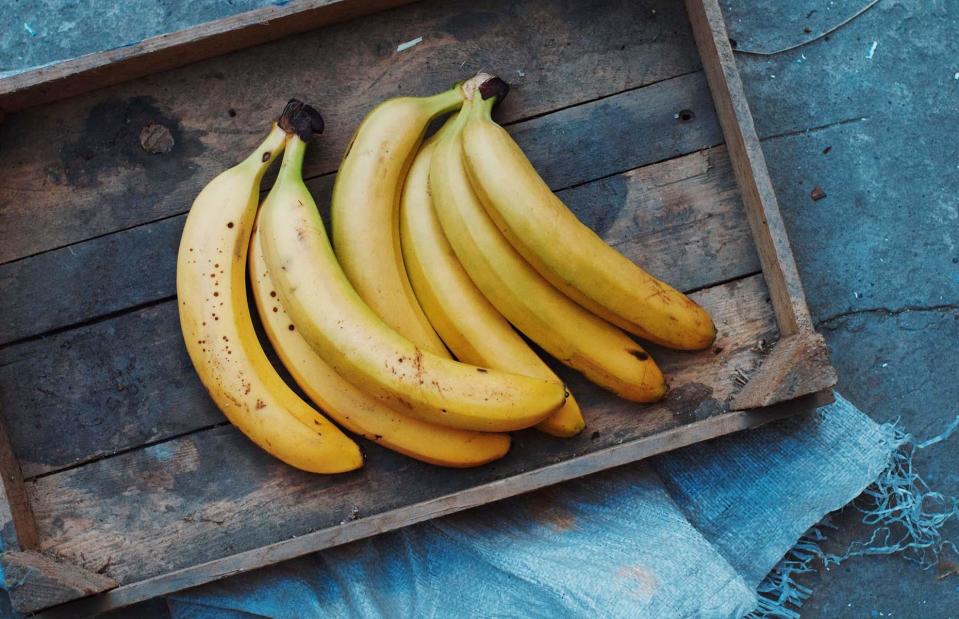
ch_ch/Shutterstock
We've been told time and time again not to put bananas in the fridge because it stops the ripening process. This is absolutely true, but once your bananas are perfectly ripe, you can pop them in the fridge to keep them at their best for a couple of days. You'll see the skin continuing to brown, but the flesh inside will stay soft and flavoursome.
Butter

itor/Shutterstock
Whether butter should go in the fridge or in a covered dish in the pantry is a hotly debated question. According to Dairy UK, butter should definitely be kept in the fridge to preserve its colour and flavour. But it's more about quality rather than a safety issue, so keeping butter out of the fridge isn't dangerous. If you like having softer butter to hand to spread on bread more easily, we suggest keeping a bigger block refrigerated to maintain quality and topping up your butter dish with smaller chunks that you'll use within a day or two.
Tortillas

Brent Hofacker/Shutterstock
Most people will chuck packs of tortillas straight into the pantry after buying, but save them a space in your fridge and they won't go mouldy as quickly as they would in a cupboard. Tortilla packs are extremely susceptible to temperature changes which can create moisture in the pack and lead to moulding. When stored in the fridge, corn tortillas can last up to eight weeks; flour tortillas for up to four; while homemade tortillas will be good for seven days instead of the usual two or three.
Nuts

Dionisvera/Shutterstock
Most of us keep a whole selection of nuts and dried fruit somewhere in the pantry for healthy snacks, baking and cooking. However, they should really be kept in your fridge. Nuts contain a high percentage of oil, so warm conditions (like a pantry in summer) can cause them to spoil much quicker. They'll be ok in your pantry for about a month, but if you keep them any longer, store in an airtight container and refrigerate.
Now find out which foods you should never keep in your fridge


